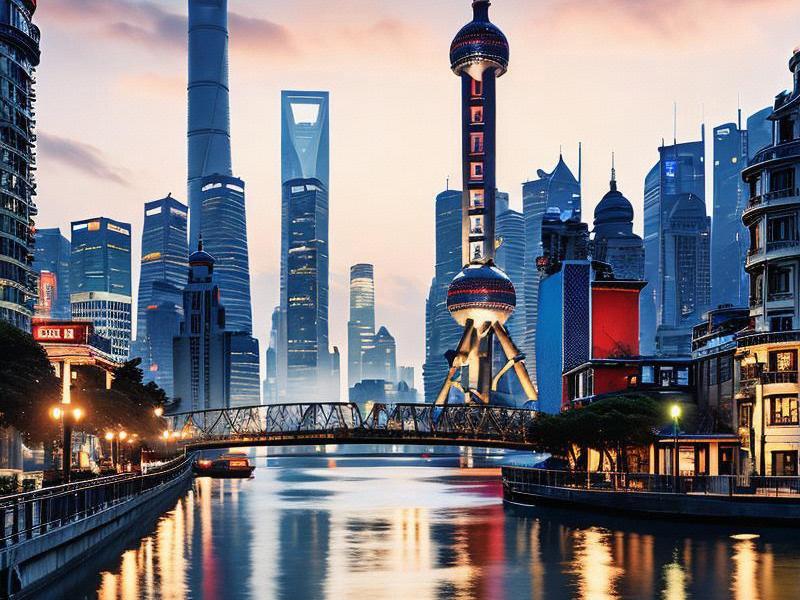This article delves into the multifaceted character of Shanghai, exploring its transformation from a small fishing village to a global metropolis. It highlights the city's unique blend of modernity and tradition, its vibrant culture, economic prowess, and the challenges and opportunities it faces in the era of urbanization and globalization.

Shanghai, often referred to as the "Pearl of the Orient," stands as a testament to China's rapid urbanization and economic rise. This dynamic city, located on the eastern coast of China, has evolved from a modest fishing village into one of the world's most influential metropolises. Its story is one of transformation, resilience, and innovation, making it a fascinating subject for exploration.
A Historical Perspective
Shanghai's history dates back thousands of years, but it was during the 19th century that the city began to take shape as a major urban center. The opening of the Treaty Ports in 1842 following the First Opium War marked the beginning of Shanghai's transformation. Foreign powers established concessions in the city, bringing with them a blend of cultures, architectures, and technologies. This period saw the construction of iconic structures like the Bund, a waterfront area lined with colonial-era buildings, which remains a symbol of Shanghai's historical significance.
Modernity and Urbanization
Today, Shanghai is a beacon of modernity, renowned for its skyline that includes some of the tallest buildings in the world, such as the Shanghai Tower, Jin Mao Tower, and the Oriental Pearl Tower. The city's urban planning and infrastructure are exemplary, with efficient public transportation systems, including the world-famous Maglev train connecting the city center to Pudong International Airport.
Shanghai's rapid urbanization has been accompanied by significant economic growth. As one of China's four municipalities directly under the central government, Shanghai holds a pivotal position in the nation's economy. It is a global financial hub, hosting the Shanghai Stock Exchange and numerous multinational corporations. The city's port, the Port of Shanghai, is the busiest container port in the world, underscoring its importance in global trade.
爱上海最新论坛 Cultural Melting Pot
Despite its modern facade, Shanghai is a city where tradition and modernity coexist harmoniously. The city is a cultural melting pot, with influences from various periods and regions. The French Concession, for instance, still retains much of its colonial charm, with tree-lined streets, boutique shops, and cafes serving as a reminder of the city's past.
Shanghai's culinary scene is another testament to its cultural diversity. From traditional Shanghainese dishes like Xiaolongbao (soup dumplings) and Shengjianbao (pan-fried buns) to international cuisines, the city offers a gastronomic experience that caters to all tastes. The annual Shanghai Food Festival attracts food enthusiasts from around the globe, showcasing the city's culinary heritage and innovation.
Economic Powerhouse
Shanghai's economic prowess extends beyond finance and trade. The city is a hub for technology and innovation, with the Zhangjiang Hi-Tech Park housing numerous startups and research institutions. It is also a leader in the entertainment industry, with the Shanghai International Film Festival being one of the most prestigious film festivals in Asia.
The city's commitment to sustainability and green development is evident in its efforts to reduce carbon emissions and promote renewable energy. Initiatives like the Lujiazui Greenway and the construction of eco-friendly buildings demonstrate Shanghai's dedication to creating a sustainable urban environment.
上海品茶论坛
Globalization and Challenges
As a global city, Shanghai plays a crucial role in international relations and diplomacy. The city hosts numerous international conferences and events, including the World Expo in 2010, which attracted millions of visitors and showcased China's achievements and aspirations.
However, Shanghai's rapid development is not without challenges. The city faces issues related to urban sprawl, traffic congestion, and environmental degradation. The high cost of living and housing prices have also become concerns for residents. Addressing these challenges requires innovative solutions and sustainable urban planning.
The Future of Shanghai
Looking ahead, Shanghai is poised to continue its journey as a global metropolis. The city's government has outlined ambitious plans to enhance its status as an international financial center and a hub for innovation. The development of the Shanghai Free-Trade Zone is expected to attract more foreign investment and boost the city's economy.
爱上海419 Shanghai's future also lies in its ability to balance modernization with the preservation of its cultural heritage. Efforts to protect historical sites and promote traditional arts and crafts are essential in maintaining the city's unique identity.
Conclusion
Shanghai's story is one of remarkable transformation, blending the old with the new, tradition with modernity, and local with global. It is a city that offers a glimpse into China's past, present, and future, making it a fascinating metropolis for visitors and residents alike.
As Shanghai continues to evolve, it remains a symbol of China's rise on the global stage. Its resilience, innovation, and cultural richness make it a city that captivates the imagination and inspires the spirit of exploration. Whether you are drawn by its historical landmarks, its vibrant culture, or its economic opportunities, Shanghai promises an unforgettable experience.
In conclusion, Shanghai stands as a testament to the power of urbanization and globalization. It is a city that has embraced change while preserving its essence, offering a unique blend of modernity and tradition. As the world watches, Shanghai continues to write its story, one that is as dynamic and captivating as the city itself.